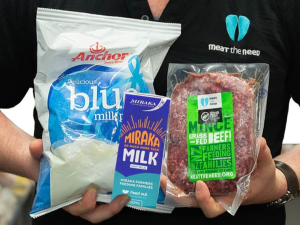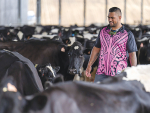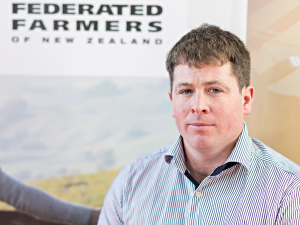Farmer-led charity, Meat the Need is calling for donations to enable it to supply more meals to families in need.
Recent reports indicate food support services nationwide have seen a 40% increase in demand for help, also increasing pressure on the charity, according to the charity.
Meat the Need general manager Zellara Holden points out that recent statistics show more than 200,000 children are living in poverty in New Zealand, and more than one in five homes with children run out of food sometimes or often.
Holden says this is a disturbing number for a country that produces so much food.
“The demand for our services right now is currently unprecedented. We have more than 100 food banks and community organisations on our wait list, and we desperately need more donations to be able to help as many communities, families and individuals as we possibly can.”
Anyone can make a difference today by texting “FEED” to 2662 to donate a meal for $3. The charity also facilitates donations of livestock, milk and cash to turn into mince and milk meals.
It’s the only charity in the country to distribute a consistent supply of nutritious protein to 115 food banks and community organisations nationwide, with more than two million meals delivered since July 2020.
In the Waikato alone, another 23,000 meals this year are needed to keep communities facing food insecurity nourished with protein. It supports 10 food banks and community organisations across the region, donating a monthly supply of mince and milk.
Hamilton Combined Christian Food Bank Administrator Hannah Davies says meat and milk donations are fundamental for a healthy, well-balanced diet and the donations enable their organisation to focus their funds on providing other food items.
“Meat and milk powder are easily our most expensive, yet most requested, food parcel items,” she says.
In the year to March, their food bank alone supplied more than 8,000 food bags to almost 6,000 households in the region.
A significant portion of clients require ongoing assistance, emphasising the persistent nature of food insecurity for many.
“Unfortunately for many living in poverty, quality meat is one of the first things sacrificed from shopping lists. Instead replaced with cheaper alternatives such as pre-cooked or preserved foods with much lower nutritional value or even no meat at all,” Davies says.
“Everyone deserves to eat. More than that, everyone deserves to eat good balanced food.
“Meat the Need and Feed Out have a great model that doesn’t just put food on the table but ensures it’s the types of food that the people want and need. Everyone knows that protein and calcium are important for children to learn and grow, it just makes sense to ensure our Tamariki are taken care of,” Davies said.
Meat the Need and Feed Out are supported by founding partner Silver Fern Farms and milk processors Miraka and Fonterra.
Donations can be made by texting “FEED” to 2662 to donate a meal for $3 or head to meattheneed.org to donate livestock, virtual livestock and cash.



















